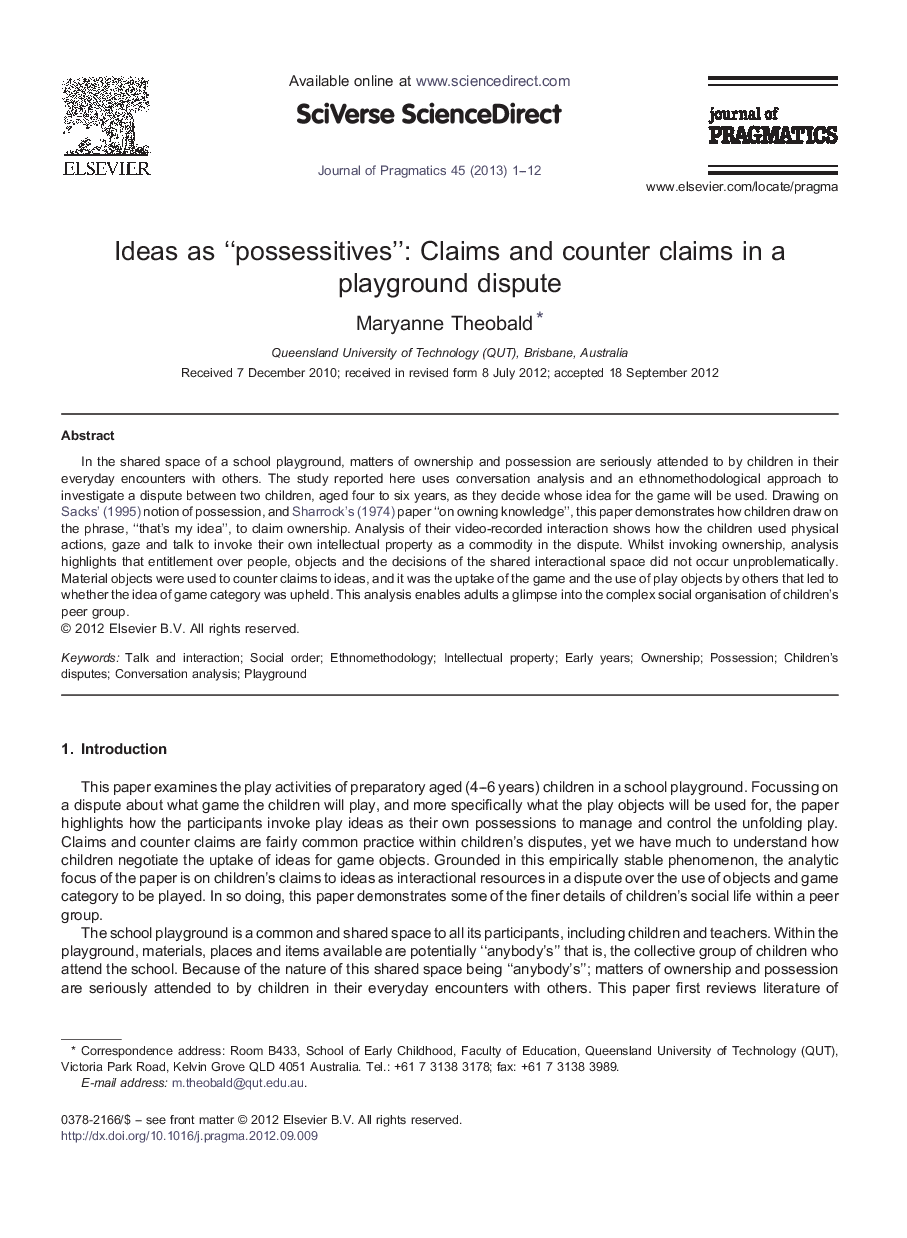| Article ID | Journal | Published Year | Pages | File Type |
|---|---|---|---|---|
| 932957 | Journal of Pragmatics | 2013 | 12 Pages |
In the shared space of a school playground, matters of ownership and possession are seriously attended to by children in their everyday encounters with others. The study reported here uses conversation analysis and an ethnomethodological approach to investigate a dispute between two children, aged four to six years, as they decide whose idea for the game will be used. Drawing on Sacks’ (1995) notion of possession, and Sharrock's (1974) paper “on owning knowledge”, this paper demonstrates how children draw on the phrase, “that's my idea”, to claim ownership. Analysis of their video-recorded interaction shows how the children used physical actions, gaze and talk to invoke their own intellectual property as a commodity in the dispute. Whilst invoking ownership, analysis highlights that entitlement over people, objects and the decisions of the shared interactional space did not occur unproblematically. Material objects were used to counter claims to ideas, and it was the uptake of the game and the use of play objects by others that led to whether the idea of game category was upheld. This analysis enables adults a glimpse into the complex social organisation of children's peer group.
► I investigate a video-recorded playground dispute between two children, aged 4–6 years. ► Sacks’ (1995a) notion of possession provides an analytic starting point. ► Actions, gaze and talk were used to invoke ideas as a commodity in the dispute. ► Material objects were used to counter claims to ideas. ► Whether the idea for the game was upheld or not was dependent on the uptake of the game by others.
